Distant mood monitoring for depressive and bipolar disorders: a
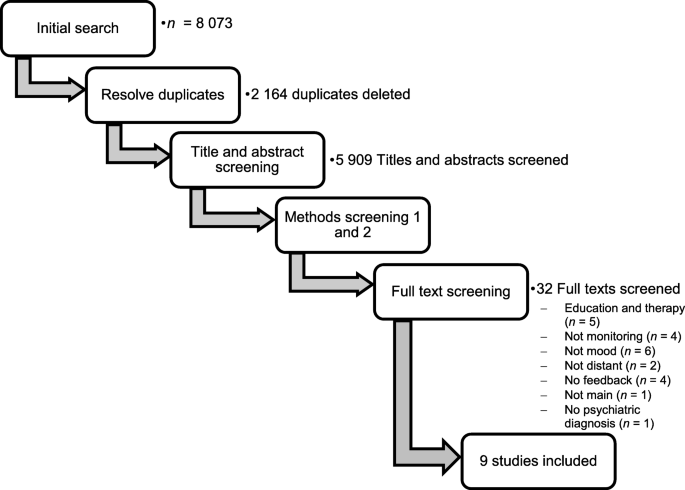
Background Broadening our knowledge of the longitudinal course of mood symptoms is cardinal to providing effective long-term treatments. Research indicates that patients with mental illness are willing to engage in the use of telemonitoring and mobile technology to assess and monitor their mood states. However, without the provision of distant support, adverse outcomes and events may be difficult to prevent and manage through self-monitoring. Understanding patient perspectives is important to achieving the best balance of self-monitoring, patient empowerment, and distant supporter involvement. Methods This systematic review synthesises quantitative and qualitative evidence of the effectiveness and feasibility of daily/weekly/monthly remote mood monitoring that includes distant support in participants with mood disorders. Inclusion criteria comprised mood monitoring of mood disorder patients as main intervention, study design, method of monitoring, and presence of psychotherapy and psychoeducation. Effectiveness was defined by the change in depression and/or mania scores. Feasibility was determined on participant feedback and completion/attrition rates. Studies were assessed for quality using the Mixed Methods Appraisal Tool version 2018. Results Nine studies of acceptable quality met the inclusion criteria. Distant mood monitoring was effective in improving depression scores but not mania scores. Feasibility, as measured through compliance and completion rates and participant feedback, varied. Conclusion Distant mood monitoring with support may be a useful, acceptable, and feasible intervention for diverse groups of patients in terms of age and ethnicity. Further, it may be effective in improving symptoms of depression, increasing treatment adherence, and facilitating the prevention and management of adverse outcomes. As a task-shifting intervention, distant mood monitoring may help to alleviate the burden on mental health providers in developing countries.

Best Journals for Anxiety, ADHD, and Mood Tracking
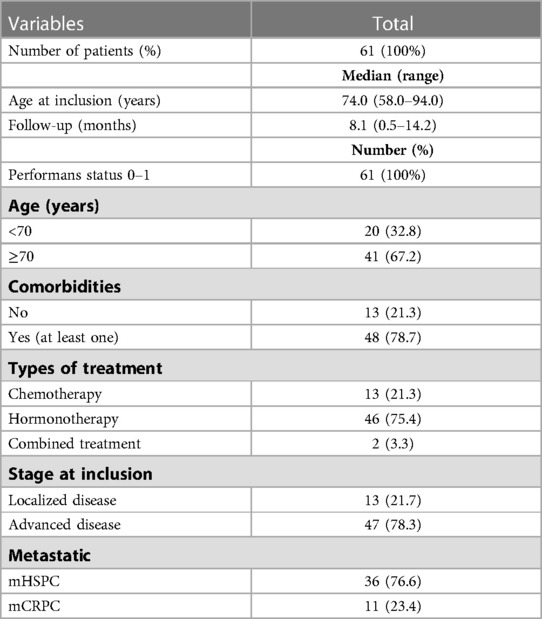
Frontiers Effectiveness of electronic patient reporting outcomes, by a digital telemonitoring platform, for prostate cancer care: the Protecty study

PDF) Independent Use of a Home-Based Telemonitoring App by Older Patients With Multimorbidity and Mild Cognitive Impairment: Qualitative Study

PDF] Psychoeducation for Bipolar Mood Disorder

Depression (QiDs) and mania (asrM) scores over 26 weeks. Abbreviations

Bipolar Disorder Tracker - Denmark

PDF) Distant mood monitoring for depressive and bipolar disorders: a systematic review

Piloting tele-monitoring in COPD: a mixed methods exploration of issues in design and implementation
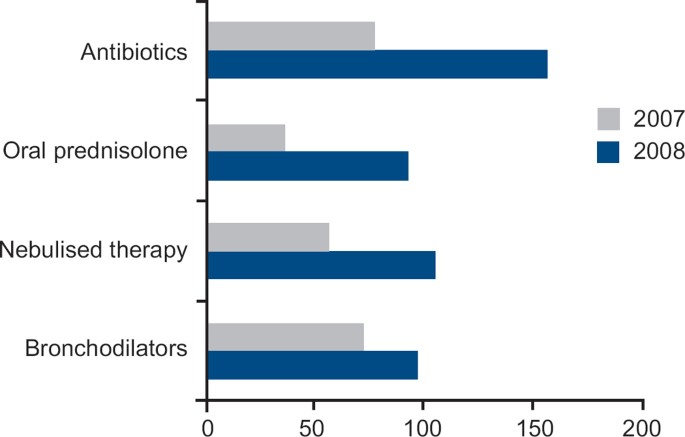
Piloting tele-monitoring in COPD: a mixed methods exploration of issues in design and implementation
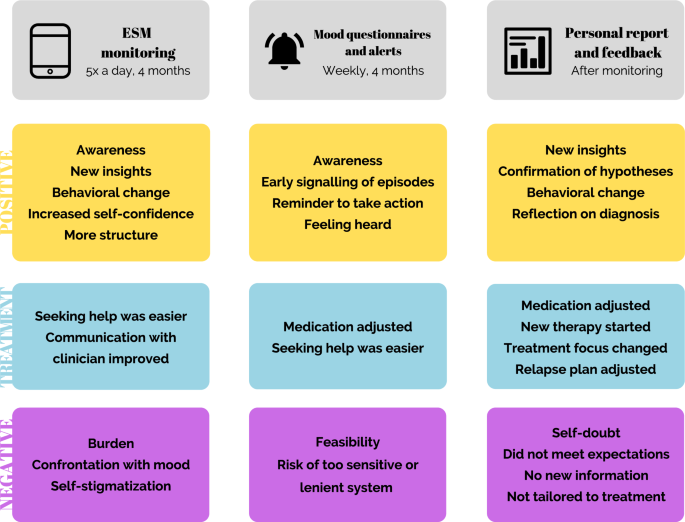
Recommendations for the use of long-term experience sampling in
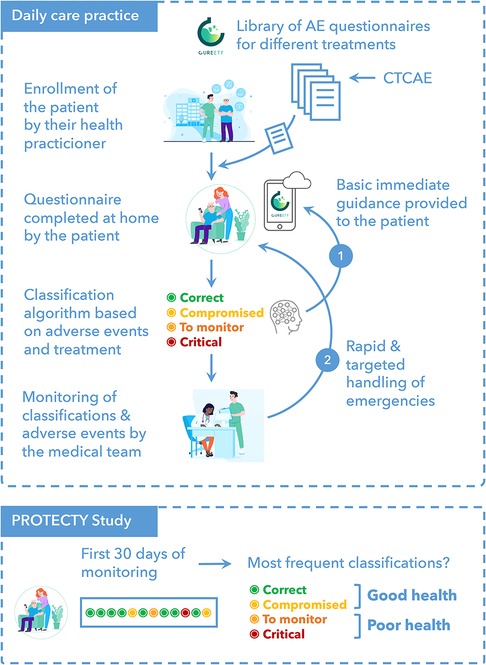
Frontiers Effectiveness of electronic patient reporting outcomes, by a digital telemonitoring platform, for prostate cancer care: the Protecty study

PDF) Developing behavioural activation for people with acquired brain injury: a qualitative interpretive description study of barriers and facilitators to activity engagement